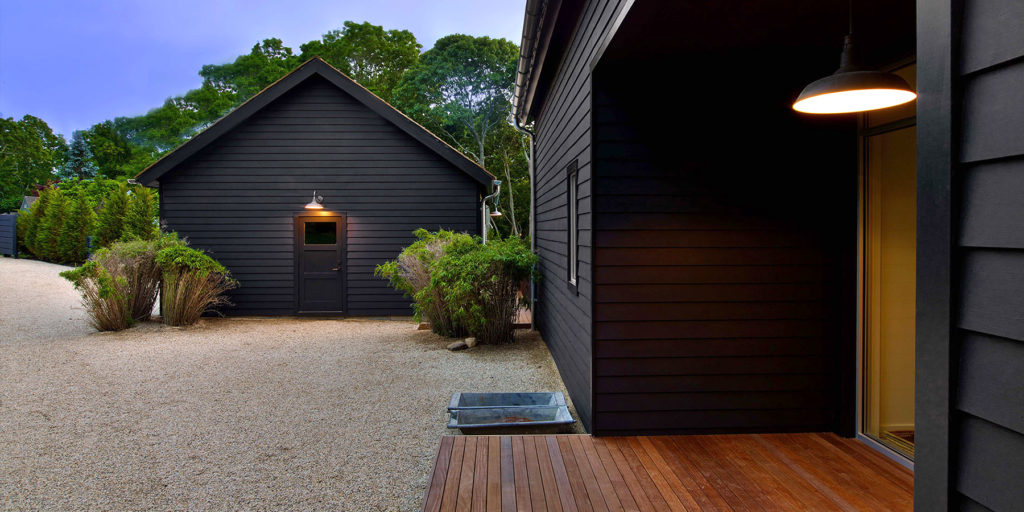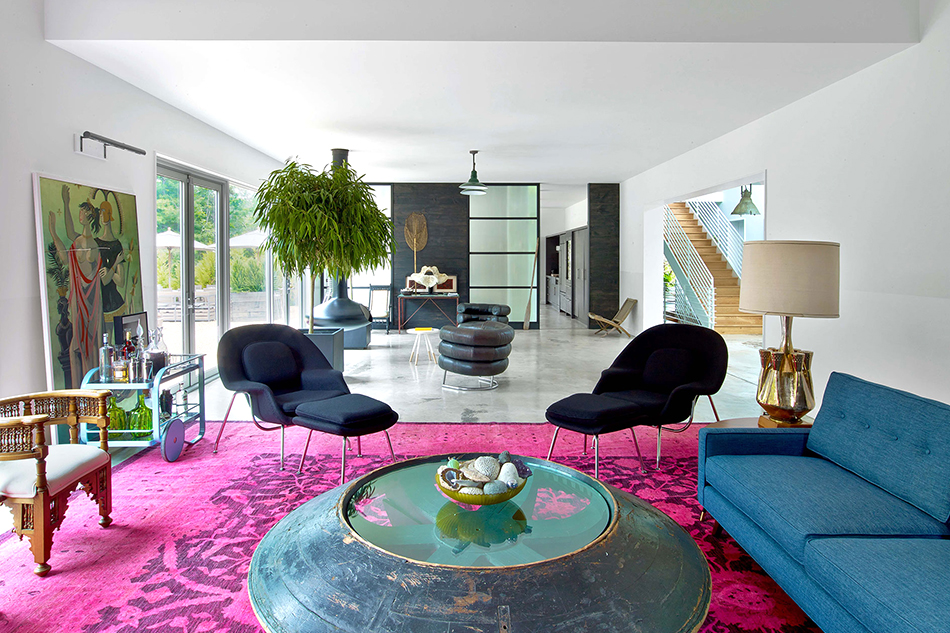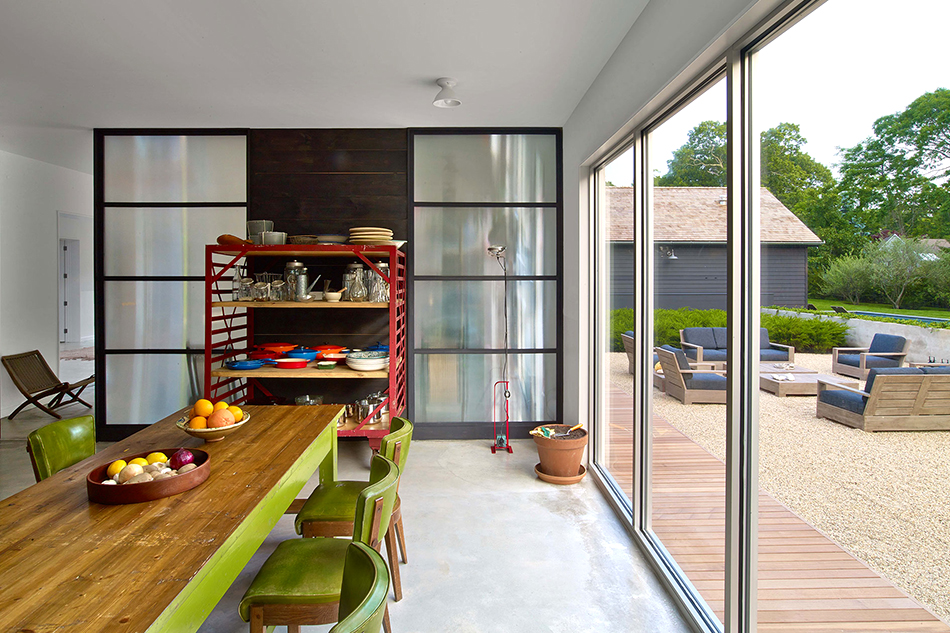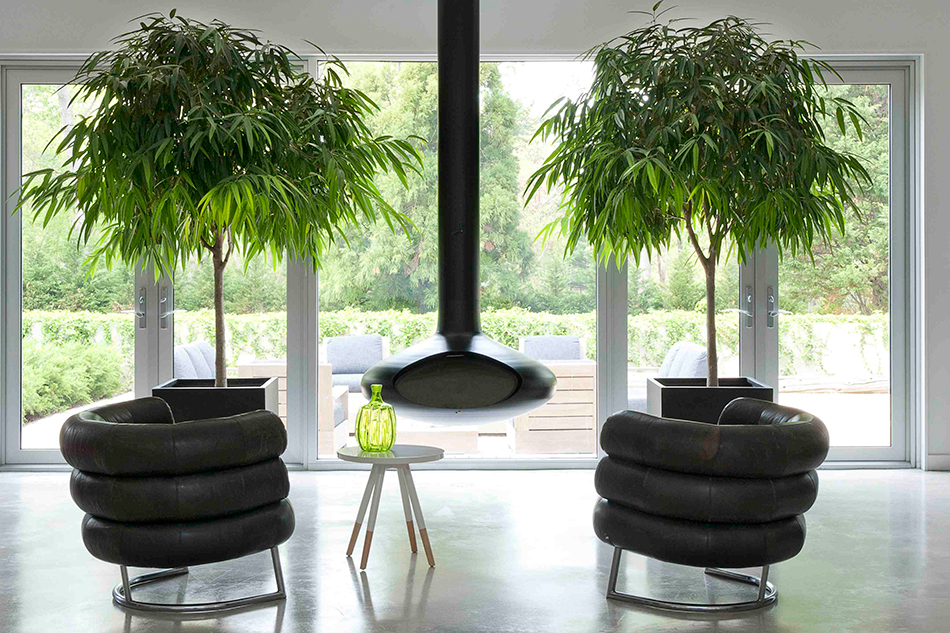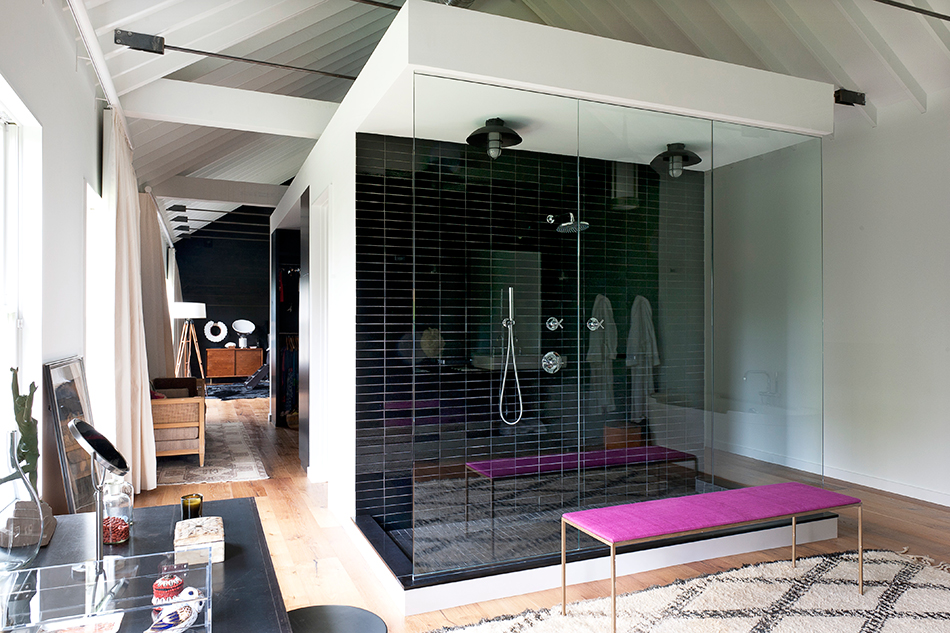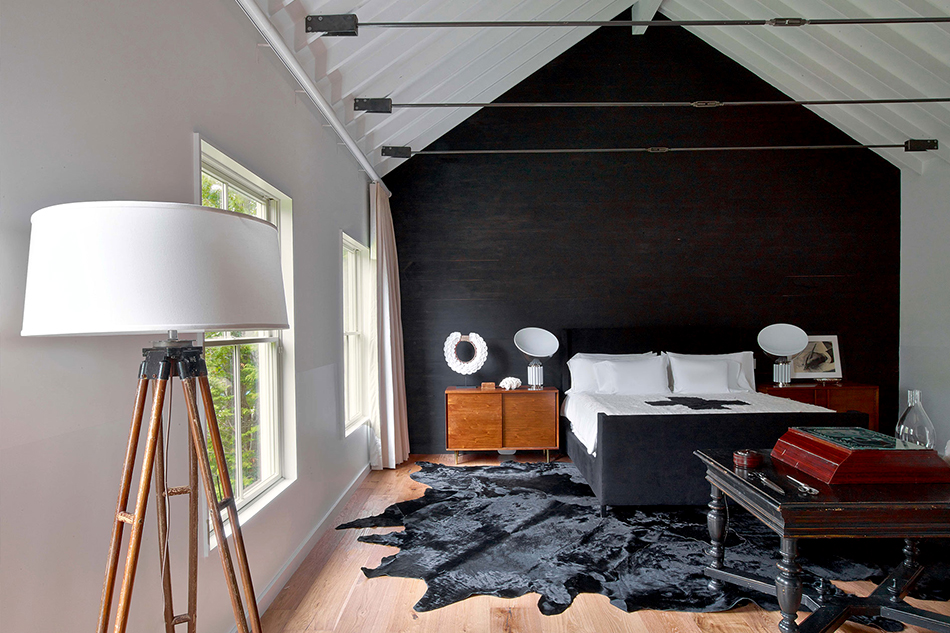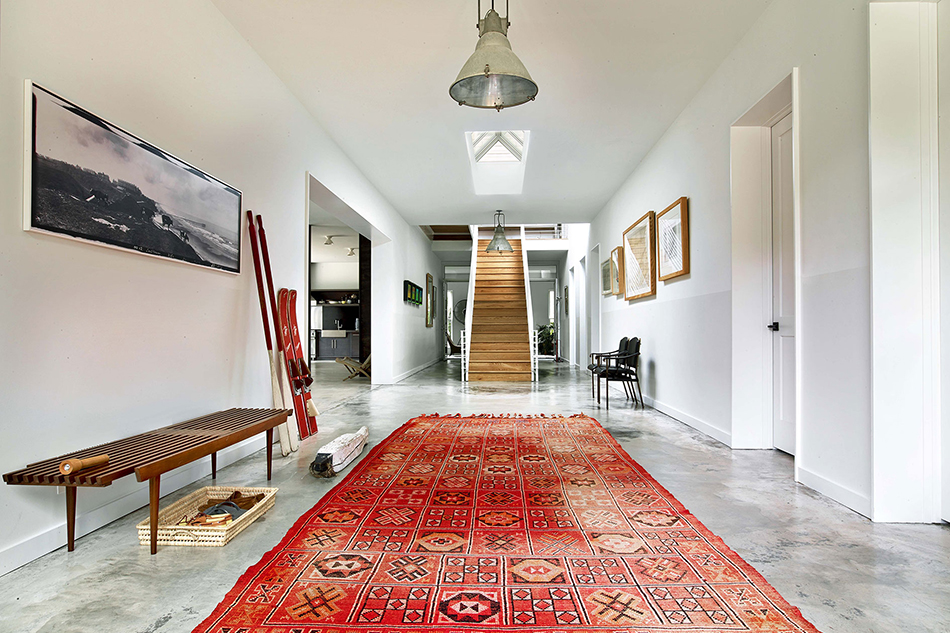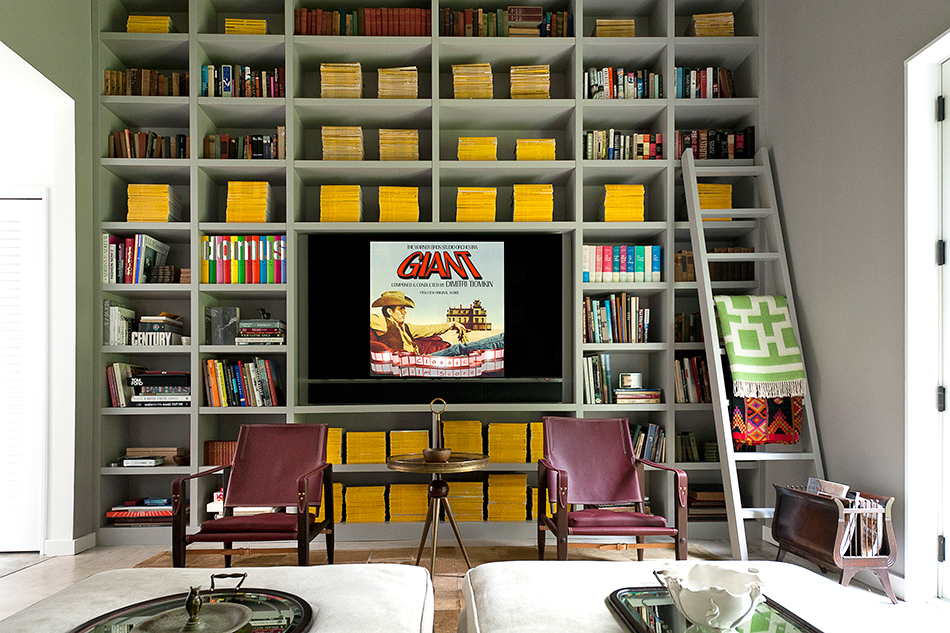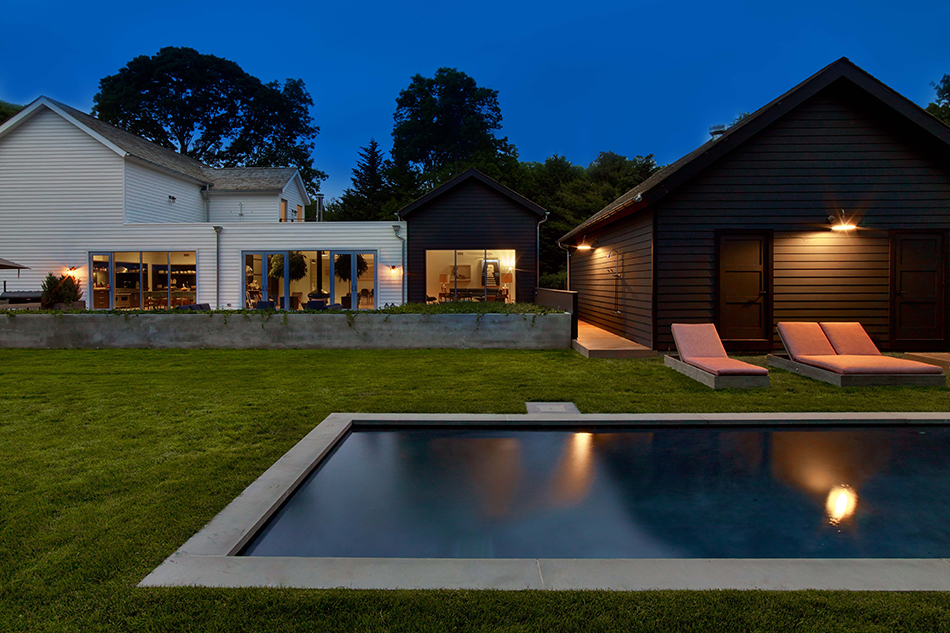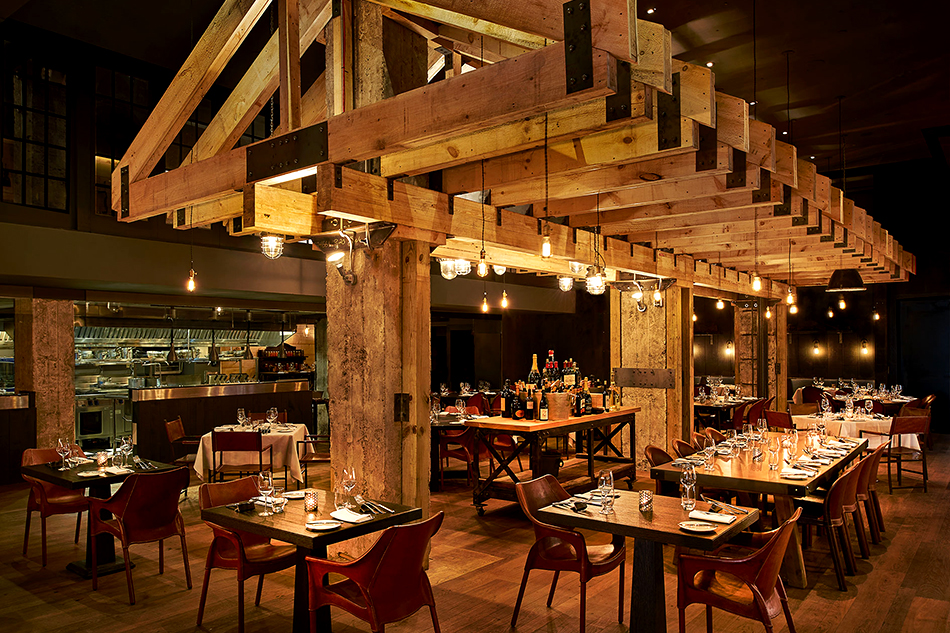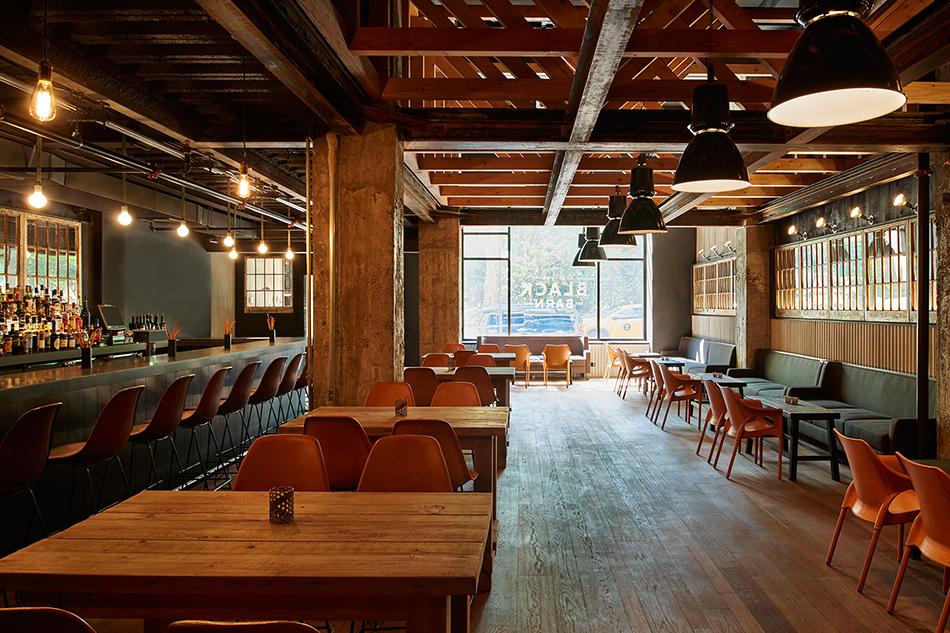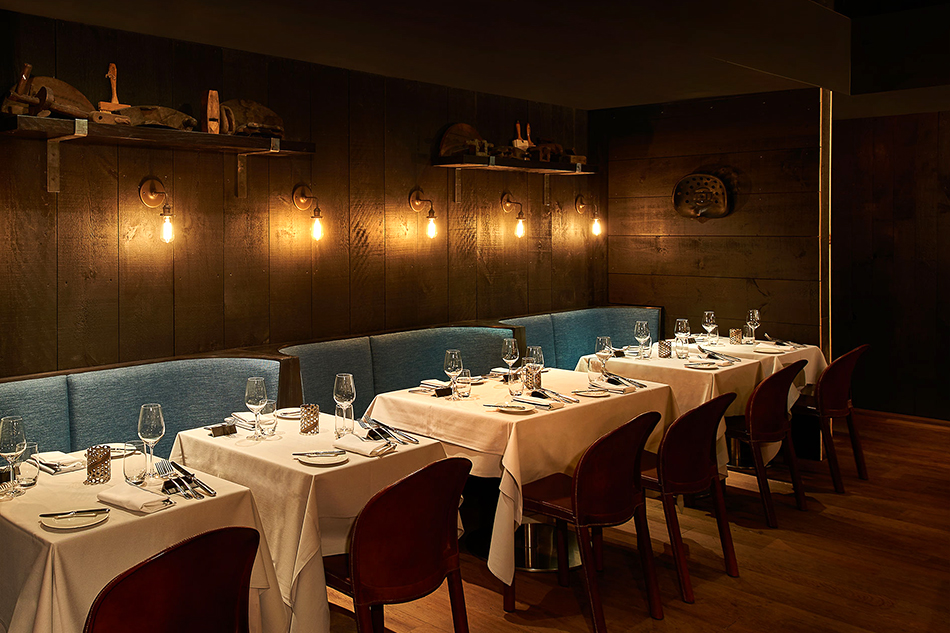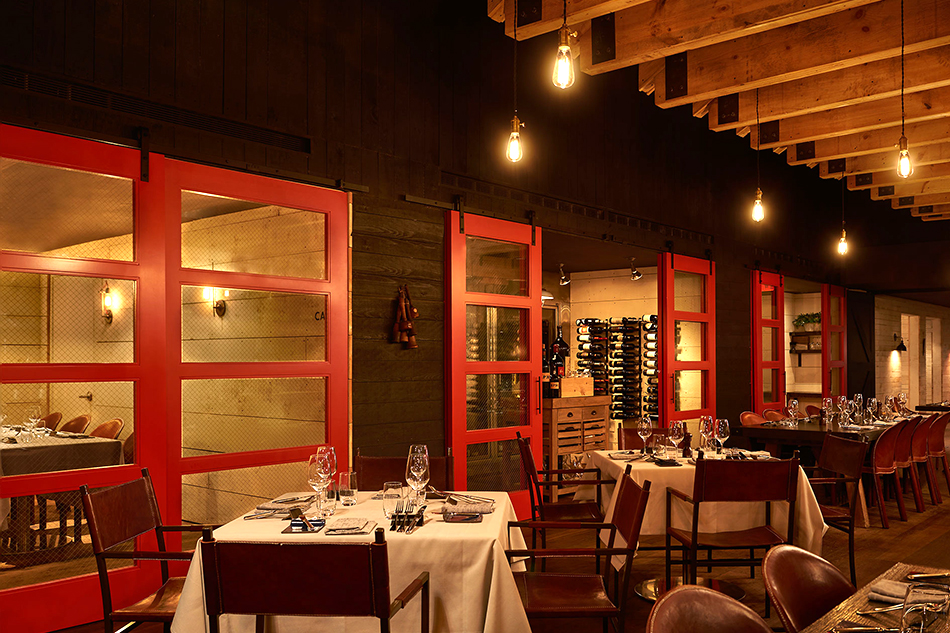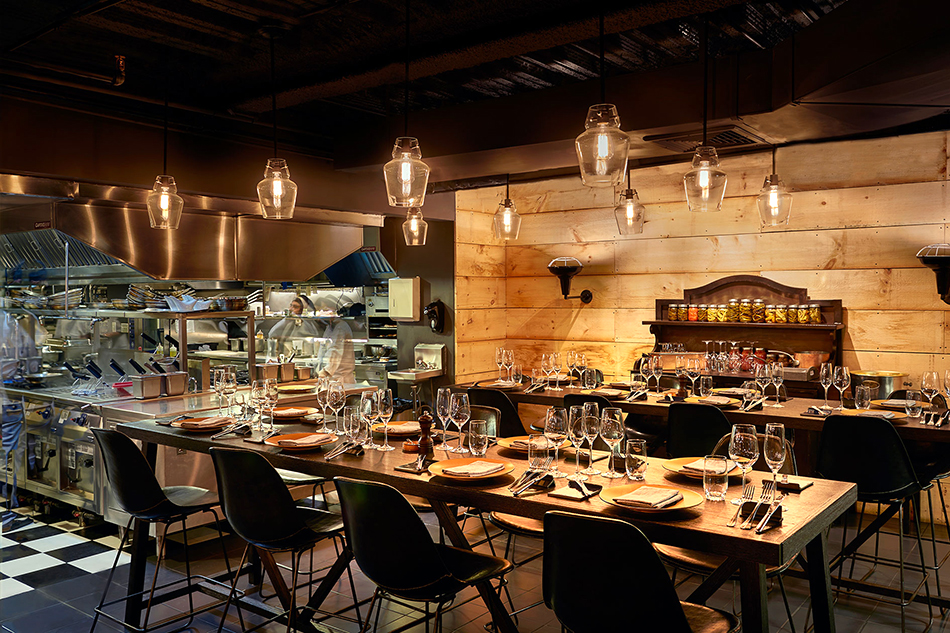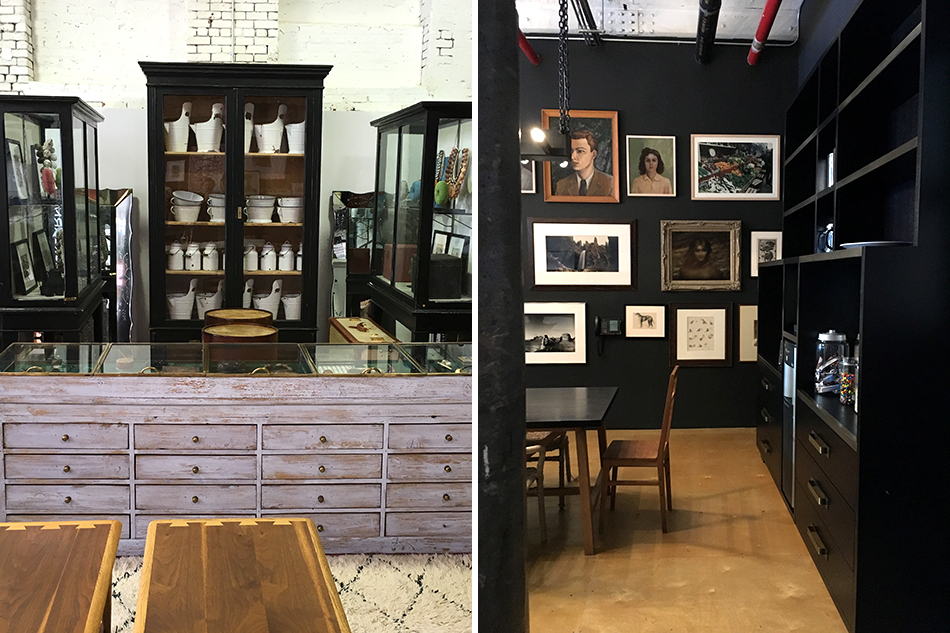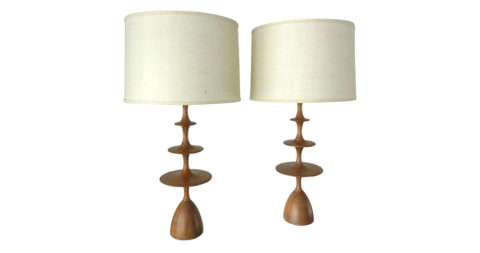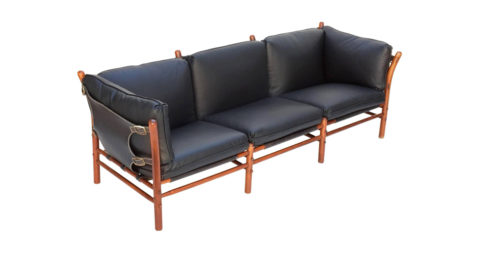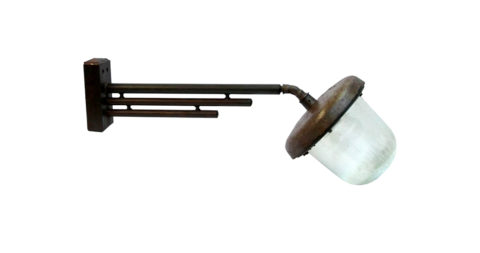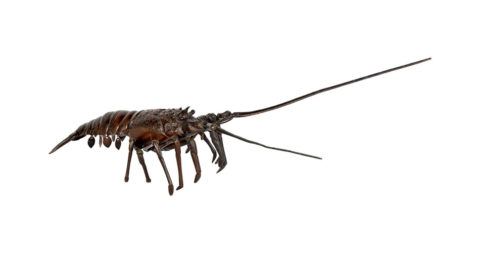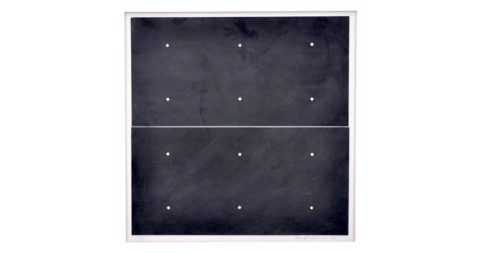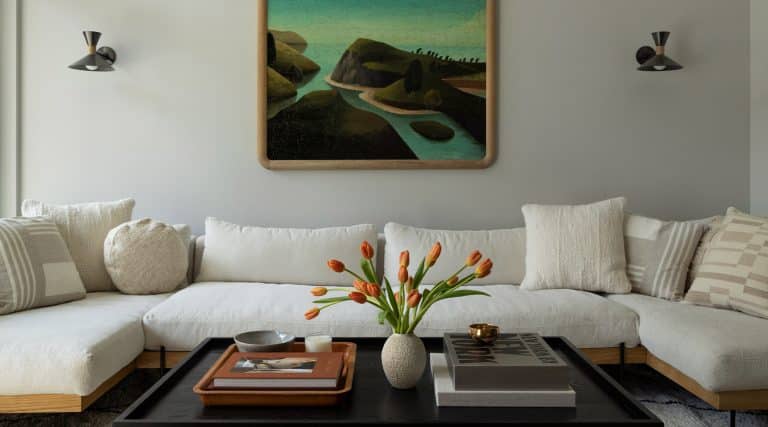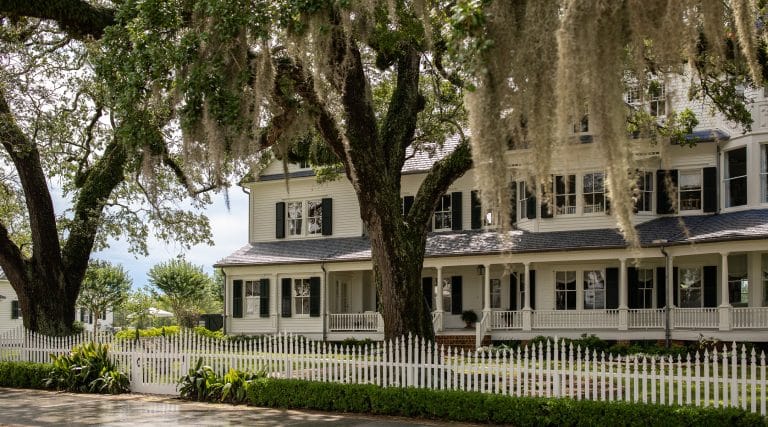
July 25, 2016Architect Mark Zeff‘s many projects include a line of furniture, hotels and a home design store (portrait by Kristen Zeff). Top: BLACKBARN, the East Hampton, New York, home that Zeff and his wife share, is the inspiration for their brand.
Architect Mark Zeff and his wife and business partner, Kristen Zeff, knew they were on to something big when they first settled into BLACKBARN, their East Hampton property, named for the inky barn-like structure at its core. The house epitomizes the organic, rustic-industrial chic that the South African–born, Manhattan-based Zeff has perfected, from its minimalist yet earthy architecture, fixtures and landscaping to the modern bohemian collection of art and furnishings inside.
“The area is just inundated with people building these McMansions, one after the other, and Kristen and I realized that there is a group of people who don’t want that,” says Zeff. “They don’t even know what they are looking for exactly, but when they see BLACKBARN, they know that’s it.”
Zeff has since branded BLACKBARN as an important component of his booming commercial and residential design firm, MARKZEFF. What began as a pioneering real-estate development business, where clients can order their own versions of BLACKBARN — down to the objects inside — has blossomed into a prototype for a multifaceted lifestyle brand that now includes the BLACKBARN restaurant, a posh new-American eatery in a modern barn setting off Manhattan’s Madison Square Park; a beautiful photo-rich book published last year by Oro; and a home furnishings shop stocked with unusual global goods that just opened in a former factory building in Brooklyn’s Dumbo. Eventually Zeff would like to build a BLACKBARN lodge someplace like Costa Rica, he says.
A well-traveled avid collector of rare and beautiful odds and ends, Zeff has the relaxed air of a bon vivant who also sincerely enjoys his work, and he has plenty of it. Born and raised in Johannesburg, he came to New York in 1982 after studying environmental design at the Chelsea Design School in London and got his start working for designer Kenneth Walker of WalkerGroup. Zeff founded his own firm in 1985, at the age of 26, and since then has designed dozens of luxury hotels, restaurants and residences, including, just last year, the bronze-and-stone-filled interiors of the posh 500 West 21st Street condominium. From that project, he spun off a line of historic-modern bath faucets called H-Line (after the nearby High Line) for the luxury-bathroom-fixtures firm Watermark Designs.

A thoughtful collection of vintage pieces, including a wire chair by Charles Eames, imbue the living room with a relaxed vibe.
While he has conceived furniture and fixtures for clients for some time, last year Zeff launched his first line of furniture, exclusively for New York gallery Maison Gerard — longtime leaders in important historic-modern and contemporary design. More refined than the BLACKBARN style, the limited-edition chairs, tables and desk offer a harmonious mix of clean lines, sensuous curves and lavish materials. “Bronze has become the rage,” says Zeff. “I think people have been searching for a beautiful metal that speaks luxury and quality.” The designs are inspired by some of his aesthetic heroes of 1920s and ’30s France: Pierre Chareau, Émile-Jacques Ruhlmann, Le Corbusier. He describes a narrow armchair as Corbusier LC1 but with a 1930s French vibe. “What I love is that Zeff can comprehend historic design and then make it his own,” says Maison Gerard’s Benoist Drut.
Zeff commissioned expert craftsman in small, family-owned factories in Italy to make the pieces — one workshop for the leather, one for the woodwork, another for the bronze. “It was fun working with my Italian factories and discovering ways of doing things that I never knew could be done,” says the designer, who points to a pewter-ish patina, which he calls “white bronze,” that was created by mistake at the factory by dipping the metal of a chair in the wrong bin. “It was a very happy accident.”
Meanwhile, Zeff is working on major hotel projects around the world, including a new Hilton boutique chain with a local-artisanal slant, called Canopy. There’s also a high-end resort in the Cayman Islands for Kimpton and a sustainable hotel in Amsterdam.

A vintage Moroccan table is topped with a whale bone and a fishing net, references to the area’s past.
But for Zeff, BLACKBARN is the most personal preoccupation. “It’s something that started as a passionate thing with my wife and that has turned into a business that is just as heartfelt,” he says. He offers clients a custom-design process that lies somewhere between a prefab home-building kit and a bespoke commission. So far, he has received seven BLACKBARN commissions, including new ground-up constructions and renovations of existing homes in the BLACKBARN manner. He has even BLACKBARN-ified a beach cottage. “I say, If you like this house, and you like the whole vibe of this house, then we can do this for you,” Zeff explains. He has priced the brand-new BLACKBARNs between $3.7 million and $4 million — “a nice entry-level Hamptons number,” he says. His own home, BLACKBARN 1, is nestled in an oak forest in the sleepy Northwest Harbor area of East Hampton. The design retains some characteristics of vernacular eastern Long Island — the pitched roof and rustic simplicity of the old barns that dot the area, for instance. But it also has concrete floors, unfinished wood beams, high ceilings and wide-open spaces with sunshine pouring in from skylights and walls of windows.
Their house may be off the beaten Hamptons’ path, but the Zeffs are hardly hiding out. Since it’s the BLACKBARN model home, the couple welcomes prospective clients to tour the property and soak up the Zeff lifestyle — a breezy, casual take on the good life. “People come in and think it’s staged, but it’s not. They say, ‘Where did you find this?’ My wife and I love that. We love to find things,” he says. Their house is filled, but not cluttered, with a good mix of eye-catching objects, from vintage water skis to tidy stacks of National Geographic magazines arranged like bright yellow minimalist sculptures on the bookshelf. In the living room, a pair of black Saarinen Womb chairs sits atop a woven Moroccan rug dyed hot pink.

The BLACKBARN shop in Dumbo stocks new, vintage and handmade items, plus pieces that were custom made for the space.
Zeff also does the landscape design, which is as dear to him as the architecture and decor. “The power of nature is something that is very, very important to me, and partly why I did this project,” he says, explaining that his mission was to build a house on less than two acres of land that feels fully immersed in the natural beauty of the area. “One of my favorite things to do in life,” he says, “is to find the tree that I’m going to now bring home and plant at my house.”
It’s this love of collecting — even trees — that prompted Mark and Kristen to launch their home design shop in Dumbo. The space is filled with objects they’ve picked up on their journeys, as well as his own furniture designs and original accessories they’ve created and made in collaboration with artisans they’ve met on their travels — a consortium of blind basket weavers in South Africa, a rug weaver in Tangiers, table and bed linens from Spain and Portugal. “These are things at a reasonable price point,” says Zeff. “And we’re not going to sell anything you can find anywhere else. That is our mantra.”
Like the shop, Zeff’s BLACKBARN book is a highly personal endeavor that reflects a desire to break from convention. Unlike the typical interior design tome, the book is less a portfolio of projects than a photo essay on his inspirations. He took the inspiration, travel and nature photos himself (with his iPhone, no less), and photographer Eric Laignel captured the other images. The selection of shots, which includes several glimpses of BLACKBARN 1, reveals a designer with a taste for scenes and objects with a story: an ancient Acacia tree in Africa, old barns he’s come across and sculptures of oversized fishing flies that he stumbled upon in Australia and purchased. “There’s a reason why every picture is in the book, just as there is a reason why every object is in one of the homes I design,” Zeff says. “The reasons may not be obvious at first, but if you step back and feel the connection from image to image, rather than overthink it, you’ll get it. It’s a gestalt thing.”
Mark Zeff’s Quick Picks on 1stdibs
PURCHASE THIS BOOK
or support your local bookstore
